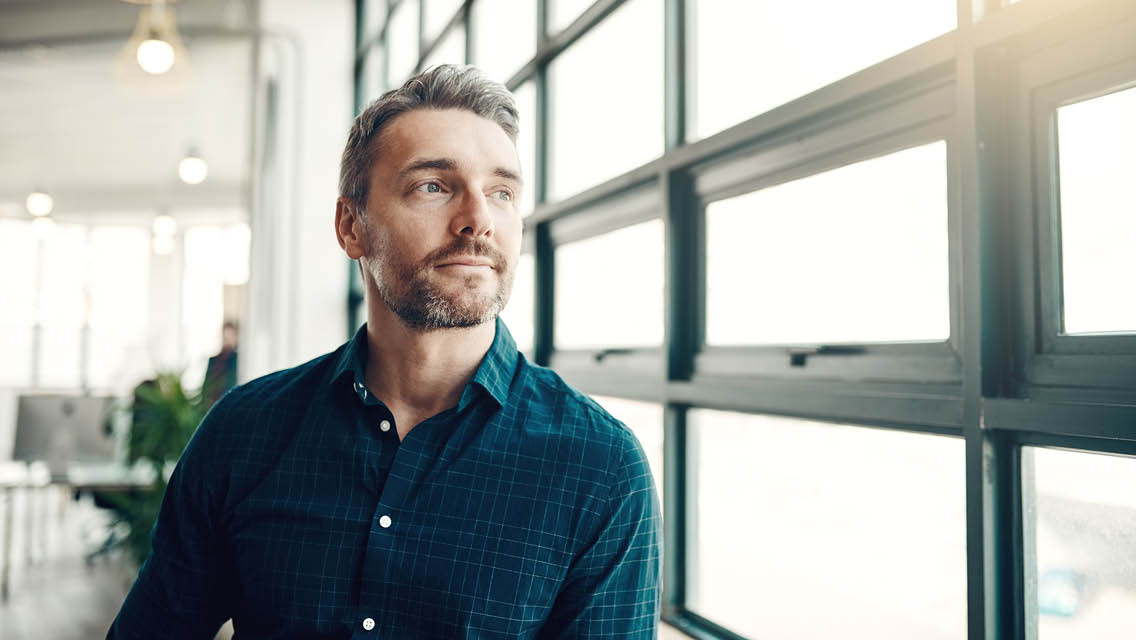While booking a family vacation recently, I stalled on the question of whether to purchase trip-cancellation insurance. Just a few short years ago, I would have dismissed the option without a second thought, but what if the pandemic surged again? What if gas prices skyrocketed? What if one of us got sick? So many possible futures appeared in my mind that it felt almost paralyzing.
Whether you’re planning an event, agreeing to a commitment, or signing up for an activity, you crave some clear sense of what your future holds. That’s an increasingly challenging task in the face of unpredictable events like pandemics, uprisings, war, and a roller-coaster economy. It’s tempting to simply crawl back into bed and pull the covers over your head.
You’re not alone. Earlier this year, a long-standing survey reported that more Americans feel unhappy than feel very happy, for the first time since the study began in 1972.
Separately, a review of 10,000 young people last year found that stress about climate change causes negative daily effects for more than 45 percent of respondents.
This is one reason we need urgent optimism, says Jane McGonigal, PhD, director of game research and development at the Institute for the Future. In her book Imaginable: How to See the Future Coming and Feel Ready for Anything — Even Things That Seem Impossible Today, she lays out the tools we all need to envision tomorrow without fear.
“Urgent optimism is a very empowering sense that there are important things you can do to determine how the future turns out,” McGonigal explains. “It’s a combination of being willing to think about things that other people describe as unthinkable, but also being willing to imagine the kinds of positive actions and new social movements and technologies capable of creating positive transformation.”
McGonigal conducts large-scale simulations in which groups of people experience what it would be like to live through a crisis. About a decade before COVID-19 emerged, she oversaw more than 20,000 game players who imagined living through a global pandemic — and the gamers developed remarkably accurate forecasts about supply-chain disruptions and misinformation that mirrored the actual experience of 2020.
Most important, they felt more optimistic and empowered than you’d expect after weeks of dwelling on such a frightening topic.
“Urgent optimism is a mindset; it’s not a personality trait,” she explains. “We can increase it by practicing and building three psychological strengths: mental flexibility, realistic hope, and future power or self-efficacy.”
Mental Flexibility
The first skill to hone is the ability to recognize that anything can change. After all, so many things we take for granted today — a computer in your pocket, self-driving cars, one-day package delivery — were inconceivable just a couple of decades ago.
Practice challenging your assumptions and imagining the opposite. For example, the Institute for the Future runs a game called 100 Ways Anything Could Be Different. You pick a topic, such as voting rights, and then list 100 things that are true — for instance, “The voting age is 18.”
Then imagine how these things might come to no longer be true — what if babies could vote?
At first, the opposite of each statement might seem ridiculous. But if you type your “upside-down facts” into Google, you might discover that there are people working toward this vision of the future. “We can essentially unstick our mind,” McGonigal argues. “You don’t know what to look for until you articulate the impossible ideas.”
You can use the 100 Ways game with your own life. Maybe you’ve always wanted to move to another country or switch careers, but you dismissed it as impossible. By imagining how that future might come to be, you stop talking yourself out of a potentially beneficial change and start developing new ideas about what’s within reach. “It can create an open space in your mind,” she explains.
More important, it disproves the notion that there’s nothing you can do to change your situation. “There’s so much confidence and inner peace that comes with being willing to think about the big, hard stuff,” she says. When you experience something unexpected, you may see an echo of the future you’d imagined — like the gamers who played through a pandemic simulation long before COVID — and therefore, you feel more prepared and confident in uncertain times.
Another exercise McGonigal recommends is imagining yourself in the future, one, five, or 10 years from now. Where do you live? How do you spend your days? Who are you with? Be as specific as possible and engage all your senses to make the reality as vivid as possible. (See “Design for the Future You” for more.)
When you imagine yourself 10 years from now, your brain experiences time spaciousness, because a decade seems an abundant amount of time for many things to change. That lets you dream up dramatic transformations without feeling panicked, building your mental flexibility.
Realistic Hope
Once you’ve built your mental flexibility, you’ll need to strike a balance between your positive imagination and your “shadow” imagination, which encompasses your more skeptical or critical thoughts about the future.
“Realistic hope is being able to identify the global risks that are worth worrying about and readying ourselves for, while also always expanding our knowledge of the things that would give us a reason to feel excited for the future,” she says.
“Realistic hope is being able to identify the global risks that are worth worrying about and readying ourselves for, while also always expanding our knowledge of the things that would give us a reason to feel excited for the future.”
The Institute for the Future runs a Scenario Club that workshops different futures each month. For example, they might discuss climate migration and brainstorm how to equitably move a billion people to safer climates and welcome them into those communities, or how to realistically live in higher-density populations than is currently typical.
You can practice this in your own life, too. Try creating a group text with friends and spend a few minutes every Friday doing research and reading about the “signals of hope” that show people are working toward a better future.
As you share these pieces of information, you’ll be engaging with how other people imagine coping with some of the biggest issues of our time; you’ll also expand your collective imagination and optimism.
“There are people all over the planet doing amazing work, testing incredible ideas, building unbelievable social movements,” McGonigal says. “We need to become aware of them so we can build up that positive imagination.”
Future Power
The final piece of the puzzle is developing a feeling of self-efficacy: the idea that you personally can change or improve your circumstances. It’s not about “becoming a superhero who saves the world from the brink of disaster,” McGonigal explains — but futures thinking can help you stretch yourself so you’re prepared to adapt when the time comes. Begin by asking yourself whether you can take a step, learn a skill, or try something new that might prepare you for an uncertain future.
McGonigal, for example, decided to learn to fly a drone, because of how useful they’ve been in emergency situations such as search-and-rescue efforts and natural disasters.
Every goal like this can be broken down into tiny steps, which McGonigal calls micro actions. “You don’t have to save the world today,” she says. If you have five minutes, you can find and bookmark an article listing the 10 most affordable drones.
Think of self-efficacy like a meditation practice, in which you take small actions every day — or a few times a week — to prepare yourself physically or mentally. The key is to develop that sense of agency.
“We have to spend time facing the future with creativity, together, and with a sense that positive action is possible, because otherwise the next generation is going to grow up feeling doomed,” she says. “Nothing else matters if half the planet has completely given up. We’re not going to get out of that unless we’re really learning to play with the deeper issues.”
This article originally appeared as “Envision a Positive Future” in the September 2022 issue of Experience Life.





This Post Has 0 Comments